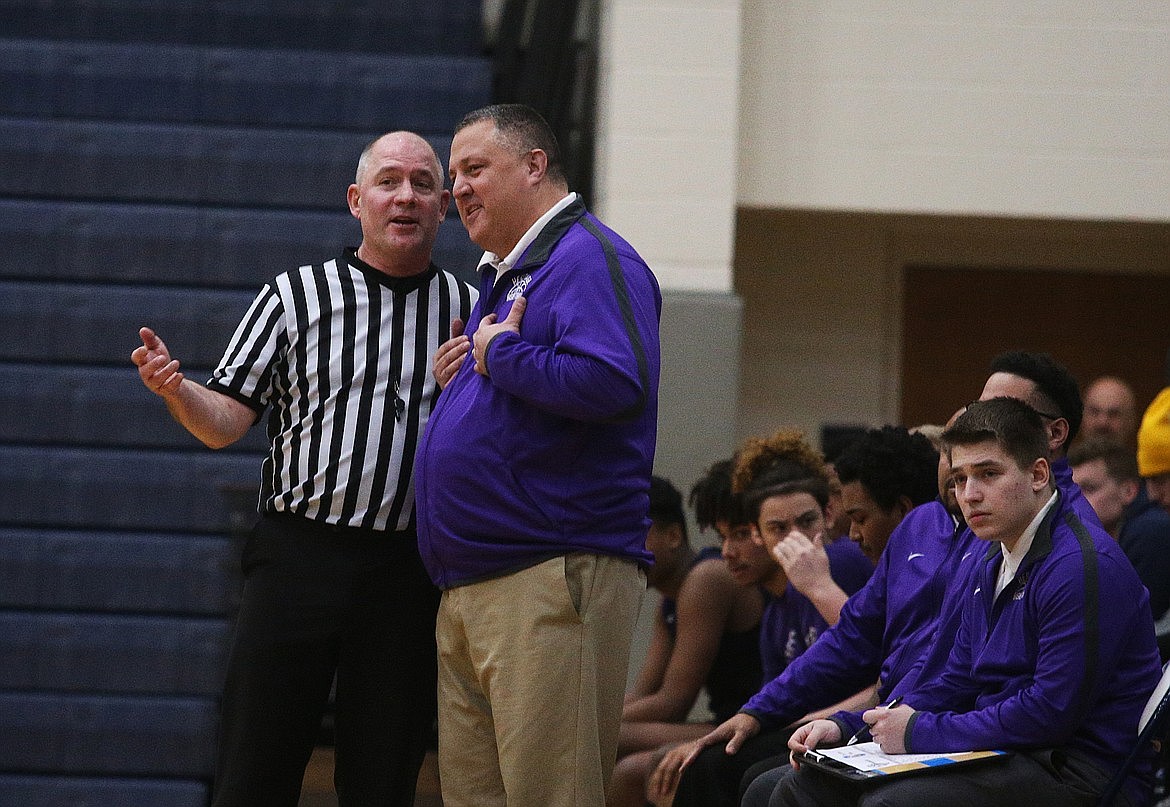Referee shortage puts high school athletics in danger
By TREVAN PIXLEY
Sports Reporter
The entire country is facing a referee shortage.
The shortage has been going on for the better part of a decade, according to Sandpoint Athletic Director Kris Knowles, but it’s only gotten worse over the last four years.
Which begs the question, why is there a referee shortage? Once officials step onto the field, they know they have to have thick skin, especially at the high school level.
But there’s a difference between having thick skin and being bullied on a nightly basis.
“We need to get patrons to understand it’s not OK to attack officials,” Knowles said. “They’re human beings, not robots. Just like everyone else in the stands has made a mistake, a referee is going to make one as well.”
Knowles recalls events over the last 10 years where referees have sworn off officiating Sandpoint games because of the flack they’d catch from fans.
“We’ve had fans come onto the field. We’ve also had fans ejected from games,” Knowles said. “Younger kids see that and think, ‘Man, I don’t ever want to be put in that position.’ ”
The officials who have been doing it for a long time are starting to age out, according to Knowles.
“We’ve had a core group in basketball and football and they’re starting to phase out,” he said. “They’re not able to do what they used to do and now we can’t get anybody to replace them.”
Another problem officials face is the time and day of events.
Traditionally, all varsity football games are on Fridays, basketball plays on Tuesdays and Saturdays, and when all the games stack up in the region, there’s not enough officials to take on the load.
“Playing football games on a Wednesday, Thursday, or Saturday is a real possibility in the near future,” Knowles said. “There’s some safety concerns there, if you play a game on a Friday and turn around and have to play on a Wednesday, especially in football.”
Knowles noted that schools were going to have to be flexible because they’d rather play the games as scheduled as opposed to canceling or delaying the matchups.
“Schools are going to have to be more flexible,” Knowles said. “We’re going to have to reschedule and cancel games. It’s a national problem, and statewide people are going to have to understand games don’t happen without the proper officials. We have to be more respectful to those who come out to the games.”
Even though these officials aren’t trying to make a living off of these high school games, the compensation is still not as much as it should be.
An average high school official receives about $50-$60 a game.
Knowles noted that the average official in the area could referee an AAU basketball game or a Coeur d’Alene junior tackle football game and end up getting paid more money.
The state has been trying to come up with ways to fund referees.
“The Region 1 board of control has been trying to brainstorm some ideas,” Knowles said. “We’re looking at possibly doing a preseason football jamboree with the proceeds going to fund officials. We still need the state to approve that, but that’s an avenue that we can go to increase pay.”
Knowles said trying to recruit referees by using it as an avenue to stay involved in the sport is an old tactic, but seems to be one not used anymore.
“We have eight million kids playing soccer and I wonder why we don’t have a ton of soccer officials,” Knowles said. “When I was in college, there was an effort to say you were a great basketball player and they’d try to say you’d make a great official. I don’t know how much of that we’re doing now.”
There are some expenses associated with becoming an official; for example, an umpire in baseball and softball has to buy their own equipment.
Knowles pitched the idea of possibly finding out how to buy some of that equipment in order to make sure officials are able to focus more on the games.
The bottom line of the referee shortage is treating people the way that you want to be treated. That will go a long way in terms of locking down referees and officials who want to help out high school athletics in the long term.
“We have to focus on the good elements instead of the negatives,” Knowles said. “Bottom line, if we don’t have officials, we don’t have games. We have to make them feel welcome as much as we can.”

